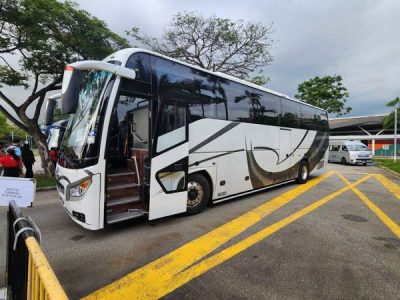Building Your Travel Budget with Precision
A taxi travel experience should leave you with lasting memories, not lasting debt. Crafting a well-thought-out budget is the cornerstone of travel planning. More than just crunching numbers, it’s about reflecting on what you value most about traveling – indulging in local cuisine, visiting historic sites, or lounging on sun-kissed beaches. It’s also essential to research the average costs for your destination. This might include the cost of meals, entrance fees for attractions, public transport, York Taxi services, or gas if you’re renting a car. Opting for a Taxi can often be a more convenient and reliable option than navigating unfamiliar public transport systems, adding ease to your journey.
Maximizing Savings with Travel Deals
There’s an art and science to finding the best travel deals. While flexibility in travel dates can lead to significant reductions in airfare and accommodation costs, setting alerts for price drops on flights and regularly checking in on hotel prices can also lead to savings. Deal aggregator sites and travel discount apps can be invaluable resources, too, offering last-minute deals and exclusive offers that aren’t available elsewhere.
Regular travelers will find that loyalty can indeed have its perks. Joining travel loyalty programs and using branded credit cards smartly can lead to rewards that include free flights, room upgrades, and other valuable perks. While cost should not be the sole determining factor—comfort, convenience, and safety are also important—being diligent about cost comparisons can ensure you get the best deal and value. And remember, the journey should be as much a part of the adventure as the destination, with budget-friendly travel options often lending the most authentic experiences. Here, the tried-and-true travel mindset of “less is more” can make all the difference. With a discerning eye and the judicious use of Expedia promo codes, the globe-trotting dream can be a reality within reach.
The Thrifty Traveler’s Accommodation Guide
Exploring alternative accommodations can add a delightful dimension to your travels while assuaging the budgetary strain. The rise of the sharing economy has brought a wider variety of lodging options – from a cozy room in a local’s home to an artist’s loft downtown. Travelers can immerse themselves fully in their destination’s culture and daily life by venturing beyond the usual hotel stay.
Getting Around Without Getting Drained
It’s tempting to jump in a taxi upon arrival. Still, public transportation is not only more economical, it adds layers to the adventure – offering unforgettable people-watching opportunities and a way to connect with the local rhythms of life. Investigate local transportation options beforehand, looking for passes, discount cards, or affordable rental options. In cities with robust bike-sharing systems, for example, you can often explore metropolises on two wheels for a fraction of the cost of other transport methods, with the added benefit of exercise and avoiding traffic jams.
Cut Culinary Costs, Not Experience
Eating like a local is one of the joys of travel, and it doesn’t have to be expensive. Many destinations have a rich street food tradition offering delectable local dishes at a fraction of the price of restaurant meals. Not only do you get to save money, but engaging in the local food scene provides an authentic glimpse into the culture and day-to-day life. Look for popular spots with locals—these places often serve the tastiest dishes at the best prices. If you’re staying somewhere with cooking facilities, use local markets for fresh, regional produce. Crafting a meal from ingredients you’ve sourced can be a fun and economical venture.
Entertainment that Enriches and Saves
Expensive ticket prices need not quench your thirst for culture and excitement. Many cities boast free attractions, from iconic landmarks to hidden gems off the beaten path. Investigating local event calendars can reveal a host of no-cost activities like festivals, open-air concerts, and markets—each presenting an opportunity to mingle with locals and gain deeper insights into the destination’s heartbeat.
Navigating Travel Protection Pitfalls
For peace of mind during your travels, consider the protective buffer travel insurance offers. While it’s an added expense up front, the costs it can mitigate—from health emergencies to stolen items—might save you from severe financial shocks. It’s essential to understand what your chosen policy covers and to weigh the likelihood of needing specific types of coverage based on your destination, the length of your trip, and the activities you plan to engage in.
Green Travel: Good for the Wallet and the World
Adopting sustainable travel practices not only contributes to the preservation of our planet but also supports local economies and communities. Essential eco-friendly practices like reducing waste, choosing greener transportation options, and participating in community-based tourism all have the net effect of keeping your expenditures down. Traveling during the shoulder or off-season can help reduce overcrowding at popular sites while taking advantage of discounted rates for nearly all aspects of travel, from flights to activities. Additionally, such practices align with the principles of responsible tourism, emphasizing minimal environmental impact and the well-being of local people. This approach to travel pays financial and ethical dividends, providing an enriching experience grounded in a sense of global citizenship and care for the future.
Expert Packing: Less Baggage, More Savings
Learning the fine art of packing light is essential to budget travel’s ethos. By eschewing unnecessary items and focusing on multi-purpose clothing and gear, you save on checked baggage fees, reduce reliance on porters and taxis, and maintain mobility to take advantage of last-minute changes or transportation options. In this situation, the adage “bring half of what you think you need and twice the money” certainly holds. Investing in a good-quality, versatile bag that meets airline carry-on requirements can result in immediate savings on luggage fees. Packing organizers or compression bags can help maximize space and keep things accessible, reducing stress and saving time. Furthermore, by being mindful of your packing list, you’ll be ready for the varied circumstances of your journey, weather changes, and impromptu adventures, all while ensuring that your travels remain light on both your shoulders and your budget.







